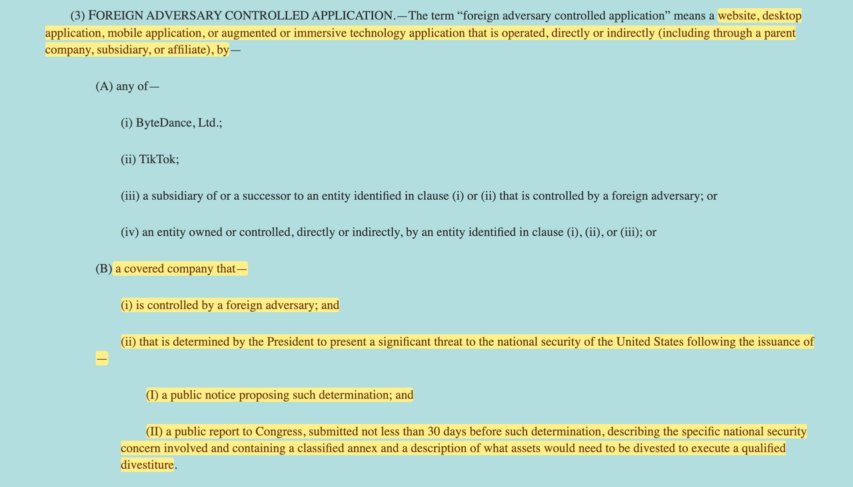When it comes to Leftie, it’s really hard to sort out what’s intentional from what’s merely wrong, or outdated, or stupid, or some combination of the above. So while there really does seem to be some kind of coordinated push to get us to eat grass and bugs, the red meat thing is, I think, just old misinformation that Leftie can’t admit has been overtaken by events (because, of course, Leftists can never be wrong about anything). And I’ll even kinda sorta give them a pass on that, because I know a lot of medical people who learned the “red meat is bad for you” mantra back in the days and still haven’t gotten over it …
For younger readers, back in the late 70s the nutritional Powers That Be got in bed with the corn lobby. It sounds funny, but they were and are huge, the corn lobby — why do you think we’re still getting barraged with shit about ethanol, even though it’s actually much worse for the environment than plain ol’ dinosaur juice, when you factor in all the “greenhouse emissions” from growing and harvesting it? Anyway, ethanol wasn’t a thing back then … but corn syrup was, and so suddenly, for no reason whatsoever, the PTB decided that fat was bad and carbohydrates were good.
Teh Science (TM) for this was as bogus and politicized as all the other Teh Science (TM) these days, but since we still had a high degree of social and institutional trust back then — living in a country that’s still 85% White will do that — nobody questioned it, and so suddenly everything had to be “fat free”, lest you get high blood pressure and colon cancer and every other damn thing (ever notice how, with Teh Science (TM), everything they decide is bad suddenly correlates with everything that has ever been bad? Funny, that). But since fat is what makes food taste good, they had to find a tasty substitute … and whaddya know, huge vats full of corn syrup just kinda happened to be there. Obesity rates immediately skyrocketed; who’d have thunk it?
… but again, this isn’t a deliberate thing with your average Leftie. You know how they are about Teh Science (TM), even Teh Science (TM) produced by people who thought polyester bellbottoms were a great look, which alone should tell you everything you need to know. They just learned “red meat is bad”, and so, being the helpful sorts they are, decided to boss you around about it. You know, for your own good.
Severian, “Friday Mailbag / Grab Bag”, Rotten Chestnuts, 2021-06-25.
March 23, 2024
QotD: The SCIENCE was SETTLED in the 1970s
March 22, 2024
Four years later
Kulak hits the highlights of the last four years in government overstretch, civil liberties shrinkage, the rise of tyrants local and national, and the palpably still-growing anger of the victims:
4 years ago, at this exact moment, we were in the “two weeks” that were supposed to flatten the Curve of Covid.
4 years ago you were still a “conspiracy theorist” if you thought it would be anything more than a minor inconvenience that would last less than a month.
Of course if you predicted that this would not last 2 weeks, but over 2 years; that within 2 months anti-lockdown protests would end in storming of state houses and false-flag FBI manufactured kidnapping attempts of Governors; that within 3 riots would burn a dozens of American cities; that the election would be inconclusive; that matters would go before the US Supreme Court, again; that a riot/mass entrapment would take place within the halls of congress … And then that this was just the Beginning …
That Big-Pharma would rush a vaccine which may well have been more dangerous that the virus; that Australia and various countries would build concentration camps for unvaccinated; that nearly all employers would be pressured or mandated to FORCE this vaccine on their employees; that vaccine passports would be implemented to track your biological status; that Canada and several other countries would implement travel restrictions on the unvaccinated and collude with their neighbors to prevent their population escaping; and then that, nearly 2 years from 2weeks to slow the spread, Canadians!? would mount one of the most logistically complex protests in human history, in the dead of winter, besieging Ottawa and blockading the US border to all trade in an apocalyptic showdown to break free of lockdowns …
Well … not even Alex Jones predicted all of that, though he got a remarkable amount of it.
Indeed the reverence with which Jones is now treated, a Cassandra-like oracle who predicts the future with seemingly (and memeably) 100% clairvoyance only to doomed to disbelief. That alone would have been unpredictable, or unbelievable in those waning days of the long 2019, those first 2-3 months when you could imagine 2020 would MERELY be an Trumpianly heated election cycle like 2016, and not a moment Fukuyama’s veil threatened to tear and History pour back into the world.
Oh, and also the bloodiest European war since the death of Stalin broke out.
If you peasants won’t buy EVs voluntarily, the government will make it mandatory
Tom Knighton notes that the government isn’t happy with us dirt people because we’re not all rushing to voluntarily give up our old fashioned internal combustion vehicles and replace them with shiny new electric vehicles like we’re supposed to:
I’ve written a lot about electric vehicles (EVs) over my time at Substack. My take is, as it always is, that I like the concept, but they’re not ready for prime time. In particular, their range and recharge time means they lose in a head-to-head comparison with internal combustion engines (ICE).
For some people, even as things currently stand, EVs make sense. They may have charging stations at work and only use them for commutes to and from their place of employment, making all of these concerns irrelevant.
Yet a lot of people don’t have that. They have concerns about EVs and so they don’t see them as a viable option, which is why people aren’t buying them.
Enter the EPA.
It seems that if we won’t willingly do what they want, they’ll just force us to buy something we don’t want.
“Outlaw your car” sounds like such an outrageous phrase, and technically speaking, it isn’t true — but only barely. What practical difference is there between outlawing something, and regulating it out of existence?
That’s exactly what the EPA intends to do this week with strict new rules going forward against gas- and diesel-powered cars and light trucks.
Expected as soon as Wednesday, the Biden EPA “is poised to finalize emissions rules that will effectively require a certain percentage — as much as two-thirds by 2032 — of new cars to be all-electric”, according to Inside EVs. Politico sells the expected rule as one that would “tackle the nation’s biggest source of planet-warming pollution and accelerate the transition to electric vehicles”.
The rule would require carmakers to cut their average emissions of carbon dioxide by 52% between 2027 and 2032. EPA projects that the standard would push the car industry to ensure that electric cars and light trucks make up about 67% of new vehicles by model year 2032.
Of course, this led to pushback by people like dealer groups and car companies who argued, as I typically do, that the American people weren’t ready for that, in part due to the price of EVs and the lack of charging stations.
So the EPA has decided to make it so that we probably can’t afford ICE cars and trucks, either, so we might as well go with EVs instead.
And people wonder why I want to dismantle the EPA at the same time as I dismantle the ATF. It’s for the same damn reason. They just make up rules that impact people’s lives and businesses, all because of their own political agenda.
Of course, raising the prices on all cars by making the emissions standards virtually impossible to meet without making the cars so expensive isn’t going to prompt a lot of people to buy electric. It’ll just make them buy older, less fuel-efficient models.
The market for used cars was already getting pretty spicy before the pandemic. Dealers were barely able to accept trade-in vehicles before they were selling them off the lot to other buyers (and there were waiting lists of willing buyers for certain kinds of vehicles … not even particularly special vehicles, either). I don’t know if that situation has changed since the pandemic, but it indicated to me that the demand for good quality used vehicles must be coming from people who’d consciously chosen not to buy newer, more expensive cars (and pretty much by definition, every EV was more expensive than an equivalant ICE vehicle).
March 21, 2024
“That is a catastrophic miscalculation for the NDP, and it’s the single best thing that happened to Poilievre”
In The Line, Matt Gurney reflects on what he got wrong about Pierre Poilievre and why he misread the situation leading up to Poilievre becoming Conservative leader:

Pierre and Ana Poilievre at a Conservative leadership rally, 21 April, 2022.
Photo by Wikipageedittor099 via Wikimedia Commons.
“Think of Trudeau in late 2019,” he told me from the bar. “India trip. SNC-Lavalin. ‘Thank you for your donation.’ Black and brown face. Canadians were souring on him. They were starting to think he was a fake, and maybe a bit of an asshole. His disapproval ratings were soaring. Then COVID hits, and he’s doing his smiling, reassuring press conferences every day outside his house. His disapprovals tank. Canadians are reminded of 2015 Trudeau. But then pandemic ends, and we’ve got some Trudeau missteps. ‘Unacceptable people’, COVID-era wedges. He’s going back to his 2019 position: people don’t like him.”
“And then,” he told me, “just as Canadians are starting to think the PM is an asshole again, the NDP decides to sign an agreement with him. [NDP leader] Jagmeet [Singh] could not have screwed up more. This is a historical, books-to-be-written-about-it screw up. Because just as Canadians are remembering that they don’t like the PM, Singh is giving those voters no reason to go to the NDP.”
Normally when the Liberal vote collapses, he continued, those voters disperse across all the parties. But CASA, my source told me, was like a funnel, forcing all the voters the Liberals were losing to go to the Conservatives instead of going everywhere. “If you’re angry at Trudeau, if you don’t like him, if you’re sick of him, you can only go Conservative this time. Singh did that. That is a catastrophic miscalculation for the NDP, and it’s the single best thing that happened to Poilievre. None of us saw that coming.”
He had other thoughts, as did others I spoke to. The People’s Party having been neutered as a threat was something I heard repeatedly, which matters, but not in the way that you think. “The PPC wasn’t a huge draw on our voters,” a senior Tory told me. “People still think the PPC was just our most-right-wing fringe. Wrong. It was drawing voters from everywhere, including typical non-voters. So the problem wasn’t that we were losing votes. The problem was that the fear of the PPC gave too many of our western MPs licence to get away with anything or oppose anything. ‘If we do/don’t do this, Maxime Bernier is going to kill us!’ Guess what? Portage-Lisgar was Bernier’s best possible shot and we annihilated him. No one is afraid of the PPC anymore. No one can use the PPC as leverage against the leader.”
I asked about that — Poilievre’s hold over his own party. In my 2021 column, I had noted that O’Toole never really had full control. Every Conservative I spoke to agreed: Poilievre has the most control over his caucus of any CPC leader they can remember. Better than O’Toole, better than Andrew Scheer, and as good, at least, as Stephen Harper. Not all the MPs were thrilled when O’Toole was replaced, but the smell of impending victory has a way of winning over new friends.
I talked with the source at the bar for a long time, and we covered a lot of ground. A lot has gone right for Poilievre, he said. Some of it is luck, some of it is timing, but some of it is entirely to Poilievre’s credit. My source isn’t one of Poilievre’s guys, so to speak. He’s just long-time CPCer, who served all four leaders of the modern era. He has never hesitated to critique the current leader in our chats, but he gave credit where he felt it due. “Poilievre was talking cost of living and inflation back when the PM was taking time at press conferences to tell everyone he doesn’t care about monetary policy, and when the finance minister and the governor of the Bank of Canada were telling everyone there was nothing to worry about, and when all the economists on Twitter were saying that deflation was the worry. Poilievre was right. In public, loudly, right. About the issue that was about to completely take over Canadian political conversation. He called it. Trudeau, Macklem and Freeland were wrong. People may not remember the details, but they remember that.”
Minneapolis rejects Uber (and economic reality)
Jon Miltimore is upset that he won’t be able to use Uber or Lyft ridesharing services in the Twin Cities after the Minneapolis City Council voted to make the business uneconomical:

“UBER 4U” by afagen is licensed under CC BY-NC-SA 2.0
The ride-hailing services Uber and Lyft announced last week that they are pulling up stakes in the Twin Cities because of a new ordinance designed to raise driver pay.
The Minneapolis City Council voted 10–3 to override the veto of Mayor Jacob Frey, passing a policy that will raise the pay of drivers to the equivalent of $15.57 per hour.
In response to the plan, Uber and Lyft announced that they will cease offering rides beginning May 1 throughout the entire Twin Cities, the 16th largest metro in the United States, saying operations were economically “unsustainable” under the plan.
“We are disappointed the Council chose to ignore the data and kick Uber out of the Twin Cities, putting 10,000 people out of work and leaving many stranded,” Uber said in a statement.
As a resident of the Twin Cities suburbs, I find this news a bit alarming. In fact, I find it infuriating.
City Council supporters say they simply want drivers to earn the minimum wage, but if that’s the case, they passed the wrong ordinance. The Star Tribune reports that council members “seemed oblivious” to a recent Minnesota Department of Labor and Industry study that concluded drivers could be paid $0.49 per minute and $0.89 per mile and make the minimum wage.
“By contrast, the plan approved by the City Council guarantees a floor of $1.40 per mile and 51 cents per minute,” the newspaper reports.
In other words, the wage plan the council passed doesn’t appear remotely close to the minimum wage. But this ignores the larger problem: Neither the Minneapolis City Council nor the state of Minnesota should be setting the wages of Uber or Lyft drivers.
Nobody is forcing drivers to give rides. The arrangement between ride-share companies and drivers is an entirely voluntary one. This is the beauty of gig work. It allows people flexibility and choice about how they’d like to spend their time.
QotD: South Africa under Thabo Mbeki
[During Nelson Mandela’s presidency, Thabo] Mbeki quickly began to insist that South Africa’s military, corporations, and government agencies bring their racial proportions into exact alignment with the demographic breakdown of the country as a whole. But as Johnson points out, this kind of affirmative action has very different effects in a country like South Africa where 75% of the population is eligible than it does in a country like the United States where only 13% of the population gets a boost. Crudely, an organization can cope with a small percentage of its staff being underqualified, or even dead weight. Sinecures are found for these people, roles where they look important but can’t do too much harm. The overall drag on efficiency is manageable, especially if every other company is working under the same constraints.
Things look very different when political considerations force the majority of an organization to be underqualified (and there are simply not very many qualified or educated black South Africans today, and there were even fewer when these rules went into effect). A shock on that scale can lead to a total breakdown in function, and indeed this is precisely what happened to one government agency after another. Johnson notes that this issue, and particularly its effects on service provision to the rural poor, pit two constituencies against each other which many have tried to conflate, but are actually quite distinct. The immiserated black lower class (which the ANC purported to represent) didn’t benefit at all from affirmative action because they weren’t eligible for government jobs anyway, and they vastly preferred to have the whites running the water system if it meant their kids didn’t get cholera. The people actually benefited by Mbeki’s affirmative action policies were the wealthy and upwardly-mobile black urban bourgeoisie, a tiny minority of the country, but one that formed the core of Mbeki’s support.
That same small group of educated and well-connected black professionals was also the major beneficiary of Mbeki’s other signature economic policy: Black Economic Empowerment (BEE). Oversimplifying a bit, BEE was a program in which South African corporations were bullied or threatened into selling some or all of their shares at favorable prices to politically-connected black elites, who generally returned the favor by looting the company’s assets or otherwise running it into the ground (note that this is not the description you will find on Wikipedia). The whole thing was so astoundingly, revoltingly corrupt that even the ANC has had to back off and admit in the face of criticism from the left that something went wrong here.
What made BEE so “successful” is that it was actually far more consensual than you might have guessed from that description. In many cases, the white former owners of these corporations were looking around at the direction of the country and trying to find any possible excuse to unload their assets and get their money out. The trouble was that it was difficult to do that without seeming racist, because obviously racism was the only reason anybody could have doubts about the wisdom of the ANC. The genius of BEE is that it allowed these white elites to perform massive capital flight while simultaneously framing it as a grand anti-racist gesture and a mark of their confidence in the future of the country.
This is one particular instance of a more general phenomenon, which is that at this stage pretty much everybody was pretending that things were going great in South Africa, when things were clearly not, in fact, going great. But this was the late 90s and early 00s, the establishment media had a much tighter hold on information than it does today, and so long as nobody had an interest in the story getting out, it wasn’t going to get out. Everybody who mattered in South Africa wanted the story to be that the end of apartheid had resulted in a peaceful and harmonious society, and everybody outside South Africa who’d spent decades supporting and fundraising for the ANC wanted this to be the story too.
John Psmith, “REVIEW: South Africa’s Brave New World, by R.W. Johnson”, Mr. and Mrs. Psmith’s Bookshelf, 2023-03-20.
March 20, 2024
QotD: Ancient Greek tyranny
The normal expectation for Greek tyranny is that the system works like the Empire from Star Wars: A New Hope, where the new tyrant abolishes the Senate, appoints his own cronies to formal positions as rulers and generally makes himself Very Obviously and Formally In Charge. But this isn’t how tyranny generally worked: the tyrant was Very Obviously but not formally in charge, because he ruled extra-constitutionally, rather than abolishing the constitution. This is what separates tyranny, a form of extra-constitutional one man rule, from monarchy, a form of traditional and thus constitutional one-man rule.
We see the first major wave of tyrannies emerging in Greek poleis in the sixth century, although this is also about the horizon where we can see political developments generally in the Greek world, still our sources seem to understand this development to have been somewhat novel at the time and it is certainly tempting to see the emergence of tyranny and democracy in this period both as responses to the same sorts of pressures and fragility found in traditional polis oligarchies, but again our evidence is thin. Tyrants tend to come from the elite, oligarchic class and often utilize anti-oligarchic movements (civil strife or stasis, στάσις) to come to power.
Because most poleis are small, the amount of force a tyrant needed to seize power was also often small. Polycrates supposedly seized power in Samos with just fifteen soldiers (Hdt. 3.120), though we may doubt the truth of the report and elsewhere Herodotus notes that he did so in conspiracy with his two brothers of whom he killed one and banished the other (Hdt. 3.39). I’ve discussed Peisistratos’ takeover(s) in Athens before but they were similarly small-ball affairs. In Corinth, Cypselus seized power by using his position as polemarch (war leader) to have the army (which, remember, is going to be a collection of the non-elite but still well-to-do citizenry, although this is early enough that if I call it a hoplite phalanx I’ll have an argument on my hands) expel the Bacchiadae, a closed single-clan oligarchy. A move by any member of the elite to put together their own bodyguard (even one just armed with clubs) was a fairly clear indicator of an attempt to form a tyranny and the continued maintenance of a bodyguard was a staple of how the Greeks understood a tyrant.
Having seized power, those tyrants do not seem to have abolished key civic institutions: they do not disband the ekklesia or the law courts. Instead, the tyrant controls these things by co-opting the remaining elite families, using violence and the threat of violence against those who would resist and installing cronies in positions of power. Tyrants also seem to have bought a degree of public acquiescence from the demos by generally targeting the oligoi, as with Cypselus and his son Periander killing and banishing the elite Bacchiadae from Corinth (Hdt. 5.92). But this is a system of government where in practice the laws appeared to still be in force and the major institutions appeared to still be functioning but that in practice the tyrant, with his co-opted elites, armed bodyguard and well-rewarded cadre of followers among the demos, monopolized power. And it isn’t hard to see how the fiction of a functioning polis government could be a useful tool for a tyrant to maintain power.
That extra-constitutional nature of tyranny, where the tyrant exists outside of the formal political system (even though he may hold a formal office of some sort) also seems to have contributed to tyranny’s fragility. Thales was supposedly asked what the strangest thing he had ever seen was and his answer was, “An aged tyrant” (Diog. Laert. 1.6.36) and indeed tyranny was fragile. Tyrants struggled to hold power and while most seem to have tried to pass that power to an heir, few succeed; no tyrant ever achieves the dream of establishing a stable, monarchical dynasty. Instead, tyrants tend to be overthrown, leading to a return to either democratic or oligarchic polis government, since the institutions of those forms of government remained.
Bret Devereaux, “Collections: How to Polis, 101, Part IIa: Politeia in the Polis”, A Collection of Unmitigated Pedantry, 2023-03-17.
March 19, 2024
Canada’s new international role: the object lesson in failure and tyranny
Tristin Hopper rounds up some of the foreign impressions of Canada’s descent into the west’s object lesson in what not to do in almost every area:
In just the last week, there have been two separate columns in British newspapers framing Canada as a model of what not to do.
Both were inspired by the tabling of Bill 63, the Liberals’ Online Harms Bill. The Spectator said that it effectively engendered the founding of a Canadian “thought police”. The Telegraph cited it as evidence that “Canada’s descent into tyranny is almost complete”.
This didn’t used to happen. It wasn’t too long ago that Canadian politics were famously inaccessible to the wider world. For Canada’s 2008 federal election, The Spectator covered it with a blog post that mostly mused on how nobody cared. “It’s curious that Canada receives almost no foreign coverage, even in Britain where there are, after all, plenty of people with Canadian relatives or connections,” it read.
But now – on topics ranging from assisted suicide to housing affordability to internet regulation – it’s not infrequent that Canada will be cited in foreign parliaments and in foreign media as the very model of a worst-case scenario.
It was just six months ago that The Telegraph scored a viral hit with a mini-documentary framing the political situation in Canada as a “warning to the West”.
“Under Justin Trudeau, Canada has sought to position itself as the global bastion of progressive politics,” reads a synopsis for the film Canada’s Woke Nightmare, which has garnered more than five million views.
The documentary notes that Canada is now at the absolute global vanguard of progressive issues including harm reduction, assisted suicide and gender ideology.
[…]
If the Online Harms Act is suddenly garnering headlines across the rest of the Anglosphere, it’s not because Canadian politics are inherently interesting to the wider world. Rather, it’s because Bill C-63 – just like any number of Trudeau policies before it – is proposing to do things that no other Western democracy has yet proposed.
While plenty of Canada’s peer countries have hate speech controls, Bill C-63 was able to raise even European eyebrows with life sentences for “advocating genocide”, and a provision for police to mandate house arrest merely on suspicion that a Canadian was likely to commit a hate crime.
The Wall Street Journal, for one, profiled the bill as a real-life example of the 2002 film Minority Report, which depicts a dystopian future in which citizens are jailed for “pre-crime”.
Or in the critical words of The Spectator, “this legislation authorises house arrest and electronic tagging for a person considered likely to commit a future crime … if that’s not establishing a thought police, I don’t know what is”.
March 16, 2024
QotD: “Surface democracies” and “surface monarchies” — how the deep state pretends to be something else
The single-party state has a PR problem, and one solution to it is a more postmodern form of managed democracy, the “surface democracy”.
Surface democracies are wildly, raucously competitive. Two or more parties wage an all-out cinematic slugfest over hot-button issues with big, beautiful ratings. There may be a kaleidoscopic cast of quixotic minor parties with unusual obsessions filling the role of comic relief, usually only lasting for a season or two of the hit show Democracy. The spectacle is gripping, everybody is awed by how high the stakes are and agonizes over how to cast their precious vote. Meanwhile, in a bland gray building far away from the action, all of the real decisions are being made by some entirely separate organ of government that rolls onwards largely unaffected by the show.
Losers and haters are perpetually accusing the United States of being a surface democracy. Enemies of the state ranging from Ralph Nader to Vladimir Putin are constantly banging on about it, but this is a Patriotic Substack and we would obviously never countenance such insinuations about our noble republic. So there’s absolutely no chance it’s even the slightest bit true of the US, but … what about Japan?
Well, awkwardly enough, it turns out that the central drama of preindustrial Japanese history was the growing power of unofficial rulers (the shoguns) who ran the country in reality while the official rulers (the emperors) gradually devolved into puppets and figureheads. A “surface monarchy”, if you will. Of course that all ended with the Meiji Restoration of 1868 (c’mon, it says “restoration” right there in the name) which returned the emperor to being fully in charge … which is why when the Japanese declared war on America in 1941, neither the Emperor Hirohito nor the parliament was even consulted. Hang on a minute!
In fact, yes, prewar Japan may have been reigned over by a monarch, but it was ruled by the deep state — especially the career military general staff and the economic planning bureaucracies. I know it’s hard to believe that drab agencies regulating coal and steel production were able to go toe-to-toe with General Tojo, but just imagine that they were all being staffed by fanatical clans of demobilized samurai or something crazy like that. When MacArthur rolled in with the occupation forces, he had a goal of creating total discontinuity with Japan’s past and utterly bulldozing the government. But a guy needs to pick his battles, and so he obviously focused on getting rid of all those nasty generals and admirals he’d just spent years fighting. The harmless paper-pushers, on the other hand, how much trouble could they be? Maybe they could even help organize the place.
The chapter about the post-war occupation is one of the deadpan funniest in Johnson’s book. The American occupiers are genuinely trying to create a liberal democracy out of the ashes, but have no idea that the friendly, helpful bureaucrats they’ve enlisted in this quest were the secret rulers of the regime they’d just conquered. The stats bear this out — of all the officials who controlled Japan’s wartime industry, only a few dozen were ever purged by the Americans. The most striking example of continuity has to be Nobusuke Kishi,1 but there were countless others like him. These were the men charged with translating the occupiers’ desires into policy, reconstructing Japanese society, and finally drafting a new constitution. Then eventually the Americans sailed off, and the bureaucrats smiled and waved, and went back to ruling as they’d done for hundreds of years, behind the scenes.
John Psmith, “REVIEW: MITI and the Japanese Miracle by Chalmers Johnson”, Mr. and Mrs. Psmith’s Bookshelf, 2023-04-03.
1 Briefly: Kishi was a descendant of samurai (of course) who became an economic planning bureaucrat (of course) and then the dictator of the Japanese puppet state in Manchuria in the 1930s. During his reign he tried out a lot of the industrial policy ideas that would later fuel the Japanese postwar boom … and also brutalized the population to such an extent that even other Imperial Japanese colonial administrators thought he was excessive. Later he signed the declaration of war against the United States (he was an economic planning bureaucrat, after all), and was briefly imprisoned as a war criminal after the Japanese surrender. Within a few years, however, he was back out, and running the country as prime minister. His brother was also prime minister. Oh … and his grandson was a guy you might have heard of, a guy named “Shinzo Abe”.
March 15, 2024
QotD: The ever-growing state
“Inconvenience would seem to be a small price to pay for peace of mind.”
That one phrase sums up all the problems we are having with government in this country. It justifies the humiliating personal searches at airports. It justifies the police state tactics of “sobriety checkpoints” or “identification stops”. It justifies the Patriot Act, and the new Intelligence Reform Act, with all their draconian intrusions on personal privacy, including the repulsive, illegal and un-Constitutional parts, such as no-warrant-required searches, a national ID card, federal snooping into our reading habits at libraries and book stores. It justifies any intrusion into private, personal, or intimate matters. After all, if someone has more than one wife (or husband), doesn’t your peace of mind require that that person be harassed, jailed, or otherwise punished for violation of your religious or moral code? It doesn’t matter that the people involved are adults who freely and willingly consent to live in that situation. For that matter, if two men or women live together, doesn’t your peace of mind require that their “immoral and ungodly” lifestyle be exposed, and the people involved publicly pilloried?
Ron Beatty, “Peace of Mind”, Libertarian Enterprise, 2005-03-06.
March 14, 2024
The insane pursuit of a “zero waste economy”
Tim Worstall explains why it does not make economic sense to pursue a truly “zero waste” solution in the vast majority of cases:
It’s entirely possible to think that waste minimisation is a good idea. It’s also possible to think that waste minimisation is insane. The difference is in what definition of the word “waste” we’re using here. If by waste we mean things we save money by using instead of not using then it’s great. If by waste we mean just detritus then it’s insane.
Modern green politics has — to be very polite about it indeed — got itself confused in this definitional battle. Which is why we get nonsense like this being propounded as potential political policy:
A Labour government would aim for a zero-waste economy by 2050, the shadow environment secretary has said.
Steve Reed said the measure would save billions of pounds and also protect the environment from mining and other negative actions. He was speaking at the Restitch conference in Coventry, held by the thinktank Create Streets.
Labour is finalising its agenda for green renewal and Reed indicated a zero-waste economy would be part of this.
This would mean the amount of waste going to landfill would be drastically reduced and valuable raw materials including plastic, glass and minerals reused, which would save money for businesses who would not have to buy, import or create raw materials.
The horror here does depend upon that definition of waste. Or, if we want to delve deeper, the definition of resource that is being saved.
[…]
OK. So, we’ve two possible models here. One is homes sort into 17 bins or whatever the latest demand is. Or, alternatively, we have big factories where all unsorted rubbish goes to. To be mechanically sorted. Right — so our choice between the two should be based upon total resource use. But when we make those comparisons we do not include that household time. 25 million households, 30 minutes a week, 450 million hours a year. At, what, minimum wage? £10 an hour (just to keep my maths simple) is £4.5 billion a year. That household sorting is cheaper — sorry, less resource using — than the factory model is it?
And that little slip — cheaper, less resource using — is not really a slip. For we are in a market economic system. Resources have prices attached to them. So, we can measure resource use — imperfectly to be sure but usefully — by the price of different ways of doing things. Cool!
At which point, recycling everything, moving to a zero waste economy, is more expensive than the current system. Therefore it uses more resources. We know this because we always do have to provide a subsidy to these recycling systems. None of them do make a profit. Or, rather, when they do make a profit we don’t even call them recycling, we call them scrap processing.
Which all does lead us to a very interesting even if countercultural conclusion. The usual support for recycling is taken to be an anti-price, anti-market, even anti-capitalist idea. Supported by the usual soap dodging hippies. But, as actually happens out in the real world, recycling is one of those things that should be — even if it isn’t — entirely dominated by the price system and markets. Even, dread thought, capitalism. We should only recycle those things we can make a profit by recycling. Because that’s now prices inform us about which systems actually save resources.











